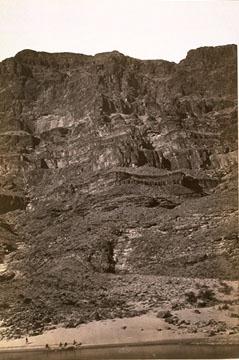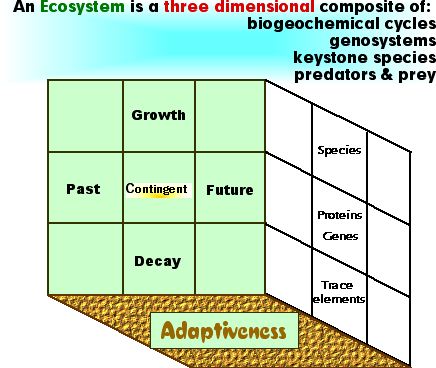
 G. Tyler Miller
G. Tyler Miller
Chapter 4: Ecosystems – Components, Energy flow & matter cycling

![]()
What are all environments’ systemic qualities?
Any of those related parts in a surrounding area that materially influence other features of the adjacent landscape; or the conditions of water, energy, air, or land (weal) that affect and are impacted --to varying measurable amounts-- by the vegetation, wildlife, and quality of human settlements in particular places.
The complexity of ecosystems can be summed up by the conversion of energy that moves trace elements and nutrients through ever more diverse assemblages of life so that these creatures may continue to eat the storms – enfolding them into their genes in order to hold the world steady; for that is the process which created us and for which we must labor with due care if we are all to survive with dignity.
George Inness, oil painting of Tarpon Springs, Florida, 1892
Select a section of the Ehrlich chapter nine or Miller book, chapter four and explain what it means.
Then select a diagram that best expresses visually what you think the passages you have selected mean:

How are these concepts related to the complexity found in these stories?
• Wilson’s Storm
• Myer’s Giant Forest Powerhouse
• Ehrlich's Dominant Animal
• Leopold’s Wolfless Mountains
• Dillard’s Weasels, predation & freedom
• Colinvaux’s niche as Miller’s “place to live”?
Nature of Ecology, the characteristics of life
Connections and the Planet's Life's support systems
The spheres of rock, air, water, life or WEAL
Atmosphere as a sink
- Biomes
- as biotic and abiotic fusion of elements
- biodiversity
Food Webs and the web of life
- energy flow in ecosystems
- pyramid of numbers and the ecological tithe (figure 420)
Primary Productivity of ecosystems
- gross versus net primary productivity
- 15 types of ecosystems
Matter cycling and materials moving through ecological systems
Nitrogen, phosphorus and sulfur

All environments possess systemic qualities. And these mixtures combine varied physical and chemical qualities affecting an organism' functions and roles to a significant degree because ecological systems are composed of the abiotic (not living) and biotic (or living) factors that explain how all life together–called biomass, in Wilson's terms, "holds the world steady" by making detailed places and utimately the entire planet a more hospitable place to thrive for ever more species and ever greater populations of each species.
For a peek into the quantum world see:
http://www.phys.unsw.edu.au/einsteinlight/jw/module6_Planck.htm